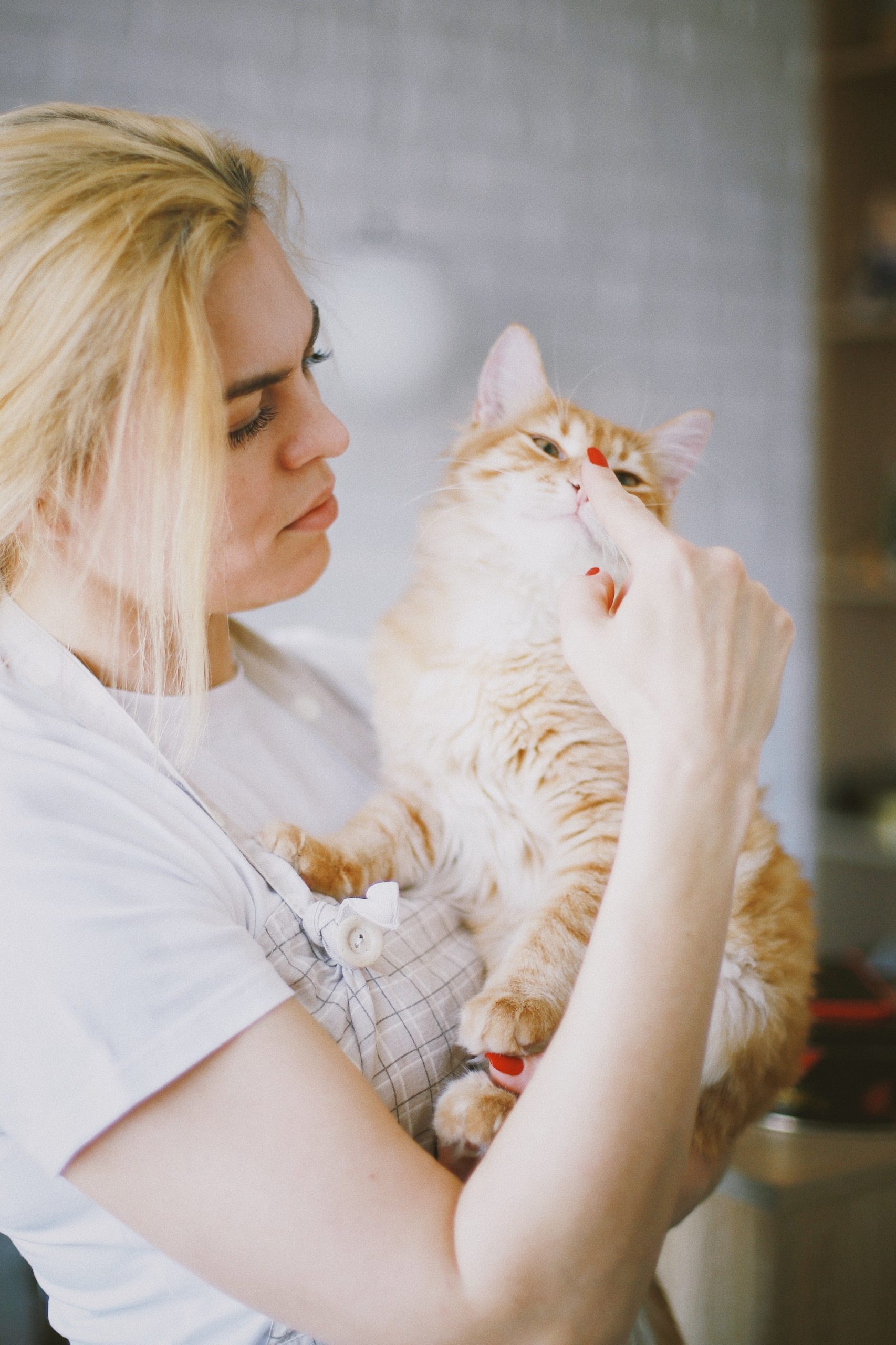When I was in university, I had my dog Torino with me. I rented an apartment off campus, and though it was difficult to find a healthy home-school balance, I found ways to change my schedule to best suit my and Torino’s needs. Sometimes leaving your animal with your parents or other family is the best option, but other times it may be a good choice to keep your pet with you. Pets are family, too, and can be very close friends. Torino was my best friend and I wouldn’t have wanted to miss one day with her.
Many on-campus student residences do not allow pets, but there are still options for student housing with pets. Pets have been found to help students who feel isolated or overwhelmed when starting university. Pets also help keep students active and get into a healthy routine.
Let’s go through some of the most common options for students with pets…
Pet-Friendly Housing
One option is to find a student rental that allows pets and coordinate with potential roommates to rent the place together. We must be mindful, however, that many people suffer from severe (even life-threatening) allergies to pet dander, so it’s important to ensure you have spoken with your landlord and roommates about allergies or other concerns they may have, such as pet care.
To make things easier, you can first look for a house or apartment that’s pet-friendly, then find some friends who are happy to share the space with your animal(s). There are lots of online resources that make finding roommates easier, such as university-specific Facebook pages created by students, where you can look for roommates, sell textbooks, give and get advice on courses, and more.

Roommates Wanted
You could post on a roommates page, asking if anyone would like to find a pet-friendly house to rent with you and your animal(s). This way only people who are not allergic and love animals will respond to room with you.
No one wants to have roommate conflicts, so it’s best to be honest and ask all potential roommates if they have allergies and want a pet in the house before moving into a new place. Even if your pet is a snake or fish that only stays in your room, it’s better to have roommates that are comfortable with these animals. This way everyone is happy and your roommates might be willing to check on your animal sometimes. If you room with other animal lovers then you will have the peace of mind that your pet(s) is(are) safe and comfortable at home with people who like them.
Apartment Seeking
If you’re having trouble finding roommates, there are other options. There are many pet-friendly apartments either in buildings or houses. A basement apartment with a separate entrance and a yard would be great for a dog or cat. A separate apartment in a house is often more affordable than an apartment building. However, apartment buildings are also an option, as bachelor apartments (small apartments with one-room in an open-concept space) can still sometimes be affordable. Since they are smaller and don’t have multiple bedrooms they are more affordable, and perfect for a single person or a couple with pets. There are lots of pet-friendly apartment buildings and some have yards, or even parks where you can take your dog out.
Pet Responsibility
If you don’t currently have a pet but are thinking about getting one while in university, here are some things to consider:
- Taking care of any animal requires dedication and responsibility. You must be certain you are both capable and willing to dedicate enough time to your pet, so they can live comfortably and happily. If you don’t have time for this commitment, it would be better to wait until you’re finished university or have more spare time. Even if you love your dog, if you’re in a demanding program (e.g. med school) you may realistically not be able to provide the care they need unless you have a roommate(s) or partner(s) able to help.
- If you do have a pet and are struggling with time management, there are options for you too. In university, I had to work part-time jobs, take care of my dog, and go to class. It was too much with full time classes, which is why I took a lighter course load. You don’t have to take the full course load each semester.
Managing Your Time with a Pet
Part-Time Studies & Summer Courses
You can choose to become a part-time student if that makes sense for your situation. The course load is much lighter and will give you time for home and a job, if you can’t survive on parental support, savings and/or scholarships alone. Part-time studies require two credits or fewer per term, which can allow you to spread your courses out and have time for other commitments.
I took two to three courses per semester to make time for work and caring for my doggy. I then took one or two summer courses, so I could still get a decent amount of credits completed per year. Think about it, summer break is four months. Why cram a bunch of classes in the fall and winter when you can spread them out by taking summer courses? I chose to disperse my courses over the whole year rather than taking five courses in one semester. This made it so much more manageable, and I still got my BA within five and a half years, with Torino at my side.
Going part-time may not be a good option for out-of-province or international students, if you need to go home over the summers or are on a tight deadline to graduate. Some sc scholarships and bursaries are only available to full-time students as well, so if you’re considering balancing part-time course loads with other commitments, make sure it’s the right approach for you! You can also try it out and go back to full-time if you need to.
Opt for Online Courses
Some courses are available to take in-person or optionally online as
well, especially post-COVID. If you have a pet and need more time at home to take care of them, then enrolling in online courses instead of in-person ones is a great option. If you are worried about leaving your pet alone too much, I suggest only taking in-person courses when they are not offered online. This way if you are required to take in-person courses, you may only need to be on campus and away from your pet for a couple of hours instead of all day. When it comes to online courses, they are often better designed for work on your own time. You can choose which days and times to work on those courses, while still at home and available for your pet’s needs.
Seek Permission to Bring Your Pet on Campus
Most Canadian campuses allow service animals for accessibility to students who need them, not all per ownership is “optional” after all! Some campuses allow regular dogs in the classroom as well as service animals, as long as they are well-behaved and quiet. If your dog is able to sit through a lecture quietly and enjoys being there, then this could be an option for you.
Another option is to take your dog for walks outside through campus. This way you can still socialize with friends and do things on campus while spending time with your furry BFF!
Important Considerations
Pet-sitting & Support
Overall, there are a lot of options for (aspiring) pet owners. There is also pet-sitting if you do need help and can afford it, whether while you’re away on a trip or for regular appointments. You may even be able to find volunteers if you can’t afford to pay a pet sitter, there are trade groups where you may be able to swap something you’re good at with someone who can help you with your pet (e.g. tutor an hour a week in French in exchange for walking your dog an hour on Mondays when you have a heavy day of classes). A lot of people love animals and sometimes when they can’t commit to full-time pet ownership they are willing to help out for quality time with an animal. However, make sure you choose a reliable company or individual that you trust with your animal and your living space (if needed).
Costs
Any animal lover can tell you vet bills and pet food can add up quickly! According to Statista, the average annual cost of owning a dog in Canada is $3500, and while the average for cats is 30% less, that’s still an investment you need to be comfortable making. You may be able to make it work for less, but you need to be realistic about the costs going in.
Make sure you factor your pet(s) into your budget properly and have a plan for if/when they need medical attention. If you like the peace of mind and consistency of pet insurance, that’s a good way to plan around it (but read the plans thoroughly to understand what you’re signing up for!) Putting aside some savings weekly or monthly for a rainy day can also help you avert financial stress.
One step at a time
Owning a pet isn’t right for everyone at every phase of their lives, so think carefully about your commitments. Consider starting school first and seeing how it goes before incorporating an animal (back) into your life to make sure you have the bandwidth for them. It’s better for everyone to be responsible and ready for this step than to struggle to adequately care for an animal. However, if you *can* make it work, I can personally attest to what an absolute and unforgettable joy it is to have your furry friend beside you throughout your school years.
Hopefully you now have more info about the many accommodations you can make to suit your university experience to your lifestyle and needs, as well as important considerations to bear in mind.
If you have any tips to help pet owners who are in university or stories about your own experience, feel free to share your thoughts with us on social media!
References
“College Students Find Comfort In Their Pets During Hard Times.” December 28, 2008, https://www.sciencedaily.com/releases/2008/12/081223091318.htm
“Roommates Wanted Western Students (UWO).” N.D., https://www.facebook.com/groups/900820483299228/
Bedford, Emma. “Annual cost of caring for a dog in Canada in 2021, by expense type.” August 17, 2021, https://www.statista.com/statistics/448188/annual-cost-of-caring-for-a-dog-by-type-canada/











